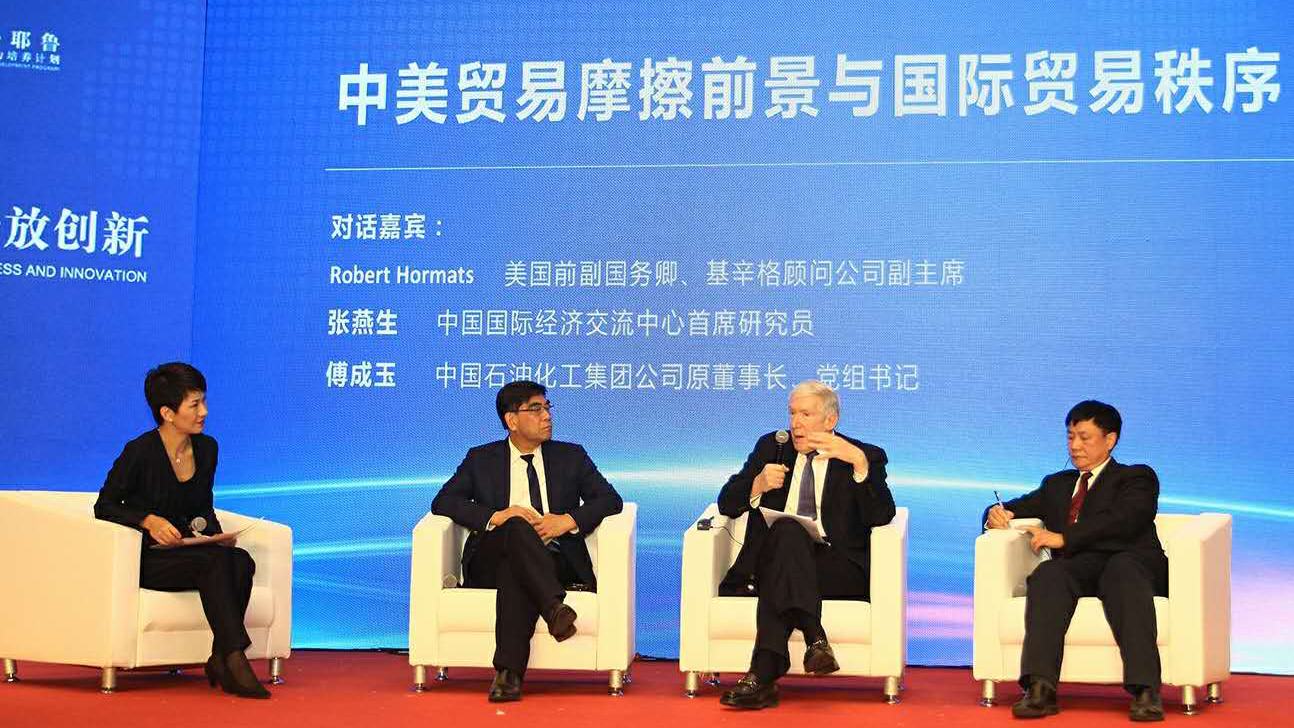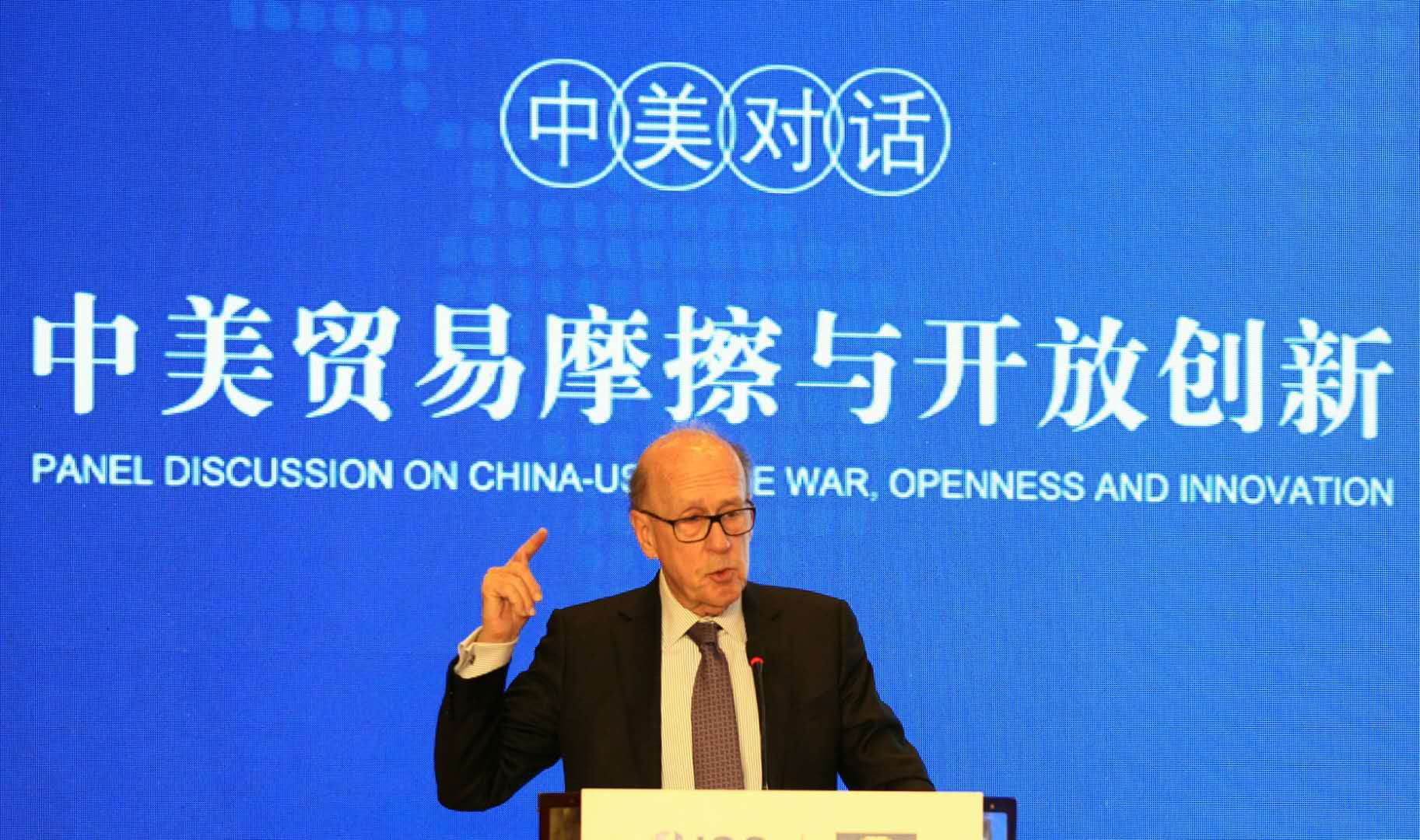
Business
23:00, 15-Dec-2018
Experts weigh in on the latest about China-US trade disputes
Updated
22:15, 18-Dec-2018
By Wang Mengzhen
02:03

There've been ups and downs since President Xi Jinping and his U.S. counterpart Donald Trump agreed to continue trade negotiations and stop additional tariffs.
Following the fresh announcement of China's suspension of three-month tariffs on U.S.-made vehicles and auto parts, scholars and industry insiders from both sides have gathered in Beijing to discuss the outlook for trade ties on Saturday.
Veteran economist Stephen S. Roach described the China-U.S. economic relationship as "codependent."
In a panel discussion over the weekend, Roach pointed out several key factors influencing the future of the trade disputes. One key factor he mentioned was the imbalance in savings between the two countries.

In a panel discussion over the weekend in Beijing, veteran economist Stephen S. Roach pointed out several key factors influencing the future of the trade disputes. /CGTN Photo
In a panel discussion over the weekend in Beijing, veteran economist Stephen S. Roach pointed out several key factors influencing the future of the trade disputes. /CGTN Photo
"China saves too much and the U.S. saves too little, which gives rise to big bilateral trading imbalances between the two nations. Both nations need to commit to bring their saving imbalances into better equilibrium," said Professor Roach, who was also formerly the chief economist at Morgan Stanley.
While stressing the importance of a bilateral investment treaty, Roach admits that there are concerns surrounding Chinese investment in America, especially given the recent legislation enacted by Congress to tighten the oversight of foreign investment.
"Just like the U.S. wants freer access to ownership of its investment in China, the U.S. would have to compromise on the recent tightening-up over restrictions on Chinese capital," Roach added.
A Chinese Commerce Ministry spokesperson said on Thursday that China would welcome any U.S. trade delegation to visit the country and is keeping an "open attitude" to visiting the U.S.
On Friday night, China announced the suspension of 3-month tariffs on U.S.-made vehicles and auto parts. This was done to carry out the consensus reached by the two sides' leaders at the G20 Summit.
"It is extremely important that good dialogue starts in the 90-day-period that was worked out in Buenos Aires. Both sides can then work to manage these areas that can't be resolved in a short period of time and continue the negotiation process on the basis of mutual benefit over the longer term," said Robert D. Hormats, vice chairman of Kissinger Associates.
Hormats served as the Under Secretary of State for Economic Growth, Energy, and the Environment from 2009 to 2013.
And this, of course, is cheerful news for the over 200 representatives from Chinese and American enterprises, attending the discussion. They made it clear that they're ready to seize any potential opportunities in the warming-up of trade ties.

SITEMAP
Copyright © 2018 CGTN. Beijing ICP prepared NO.16065310-3
Copyright © 2018 CGTN. Beijing ICP prepared NO.16065310-3